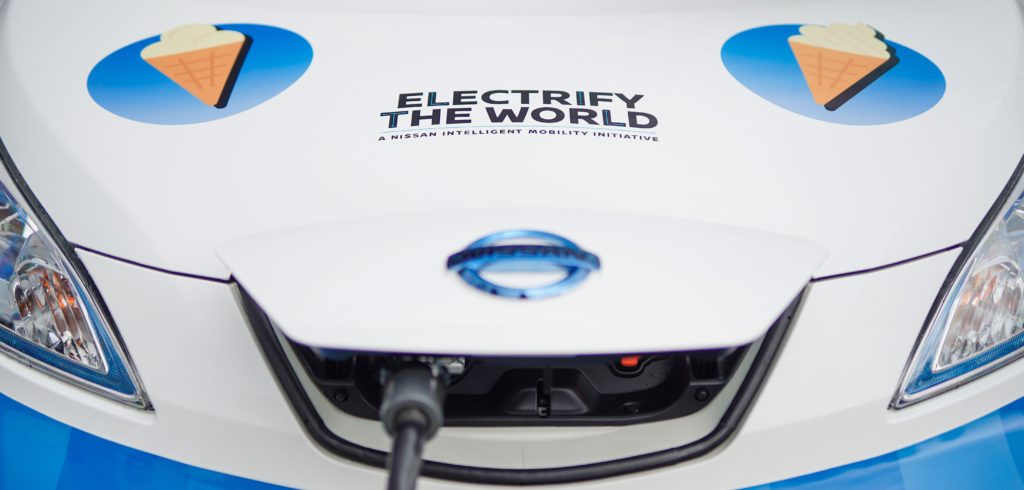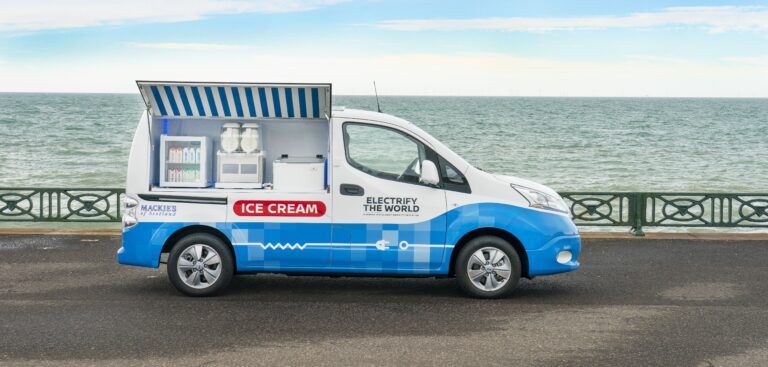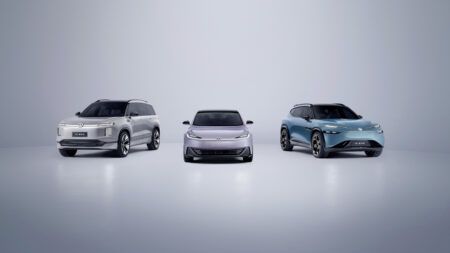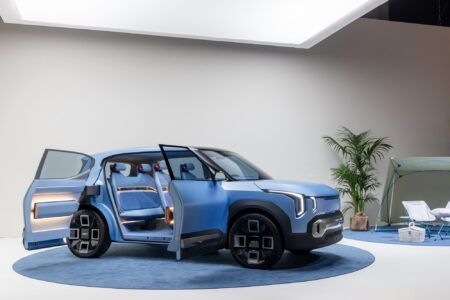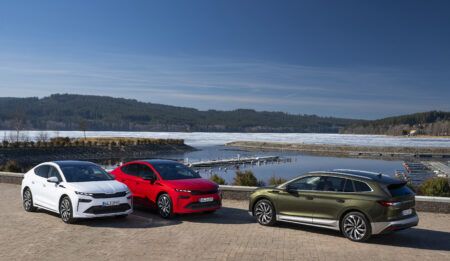Nissan has revealed an all-electric, zero-emissions ice cream van concept that could help vendors from being frozen out in the future as a result of stricter emissions laws.
With many traditional ice cream vans using diesel engines that are kept running while idle in order to keep its on-board refrigeration and equipment switched on, the humble purveyor of frozen treats is facing increasing criticism, with some towns looking to fine vendors or even outlaw them altogether.
Nissan, however, has served up a winning idea of turning to electrification. To eliminate the harmful emissions and black carbon being emitted from vendors’ old vans, its prototype van, which is a converted e-NV200, is a fully-electric LCV that employs a second-life battery storage system and renewable solar energy generation.
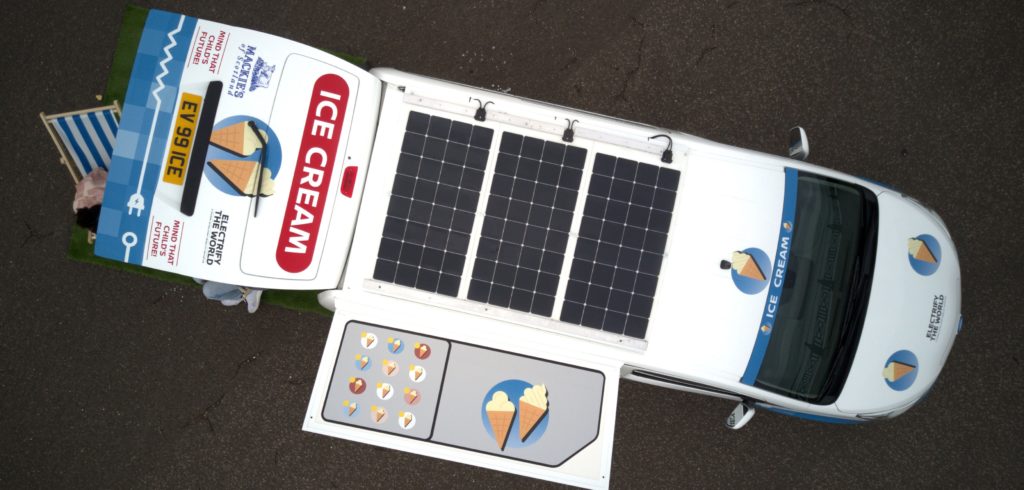
The van’s motor is driven by a 40kWh battery, the on-board ice cream equipment, including a soft-serve machine, freezer drawer and drinks fridge, are powered by the newly unveiled Nissan Energy ROAM – a portable power pack that uses lithium-ion cells recovered from early first-generation Nissan electric vehicles (produced from 2010 onwards).
“Ice cream is enjoyed the world over, but consumers are increasingly mindful of the environmental impact of how we produce such treats, and the ‘last mile’ of how they reach us,” said Kalyana Sivagnanam, managing director, Nissan Motor (GB) Ltd.
“This project is a perfect demonstration of Nissan’s Intelligent Mobility strategy, applying more than a decade of EV experience and progress in battery technology to create cleaner solutions for power on the go – in ways customers might not expect.
“By eliminating harmful tailpipe emissions, and increasing our use of renewable energy, we can help make this a better world for everyone.”
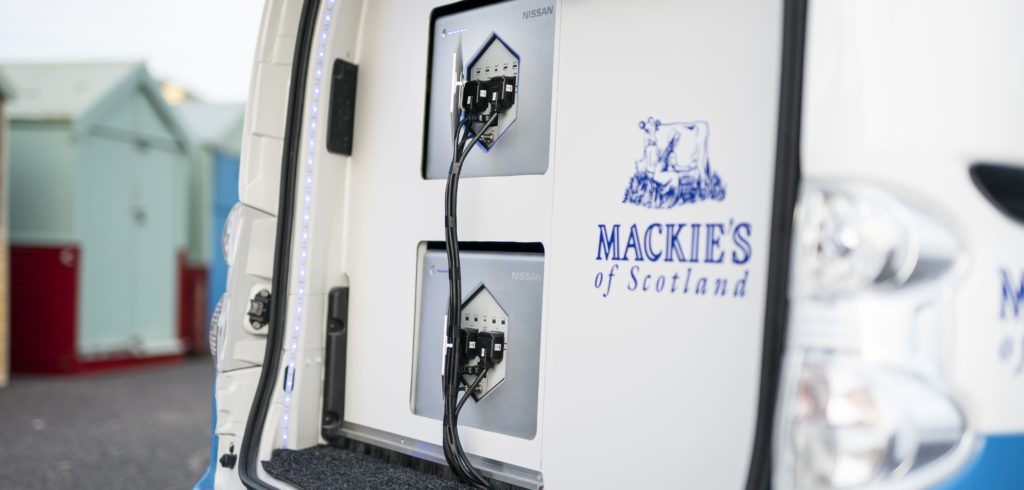
Meanwhile, the e-NV200 van itself has an all-electric driving range of up to 124 miles, while the two Nissan Energy ROAM units have a combined storage capacity of 1.4kWh and can each output power at up to 1kW. They can be recharged either from a 230v mains supply (a full recharge takes about an hour), or the solar panel array on the van’s roof (a full recharge in 2-4 hours).
Nissan created the concept for Clean Air Day along with partner and ice cream producer Mackie’s of Scotland. It shows the efforts to remove carbon dependence and a potential solution to vendors looking to reduce their carbon footprint and stay sweet with emissions regulations.
